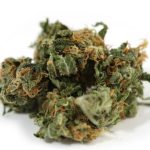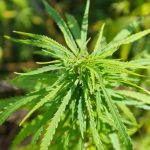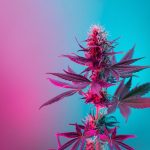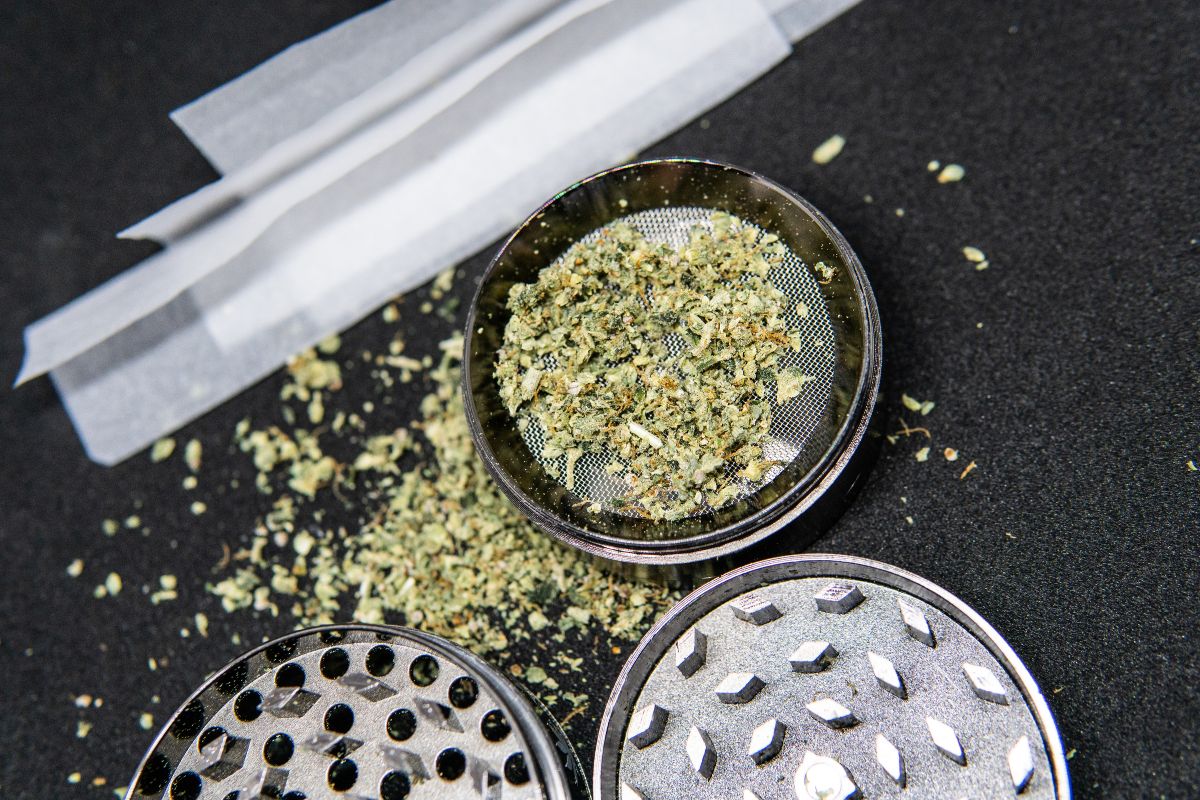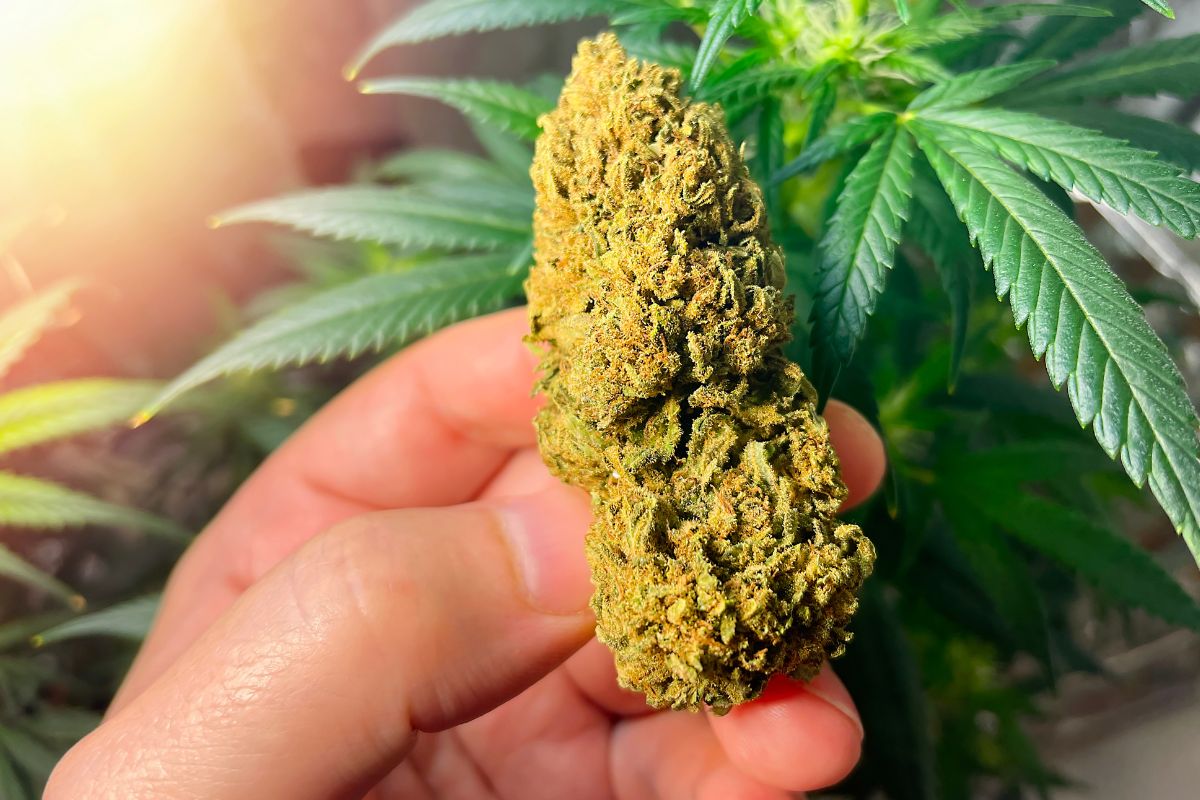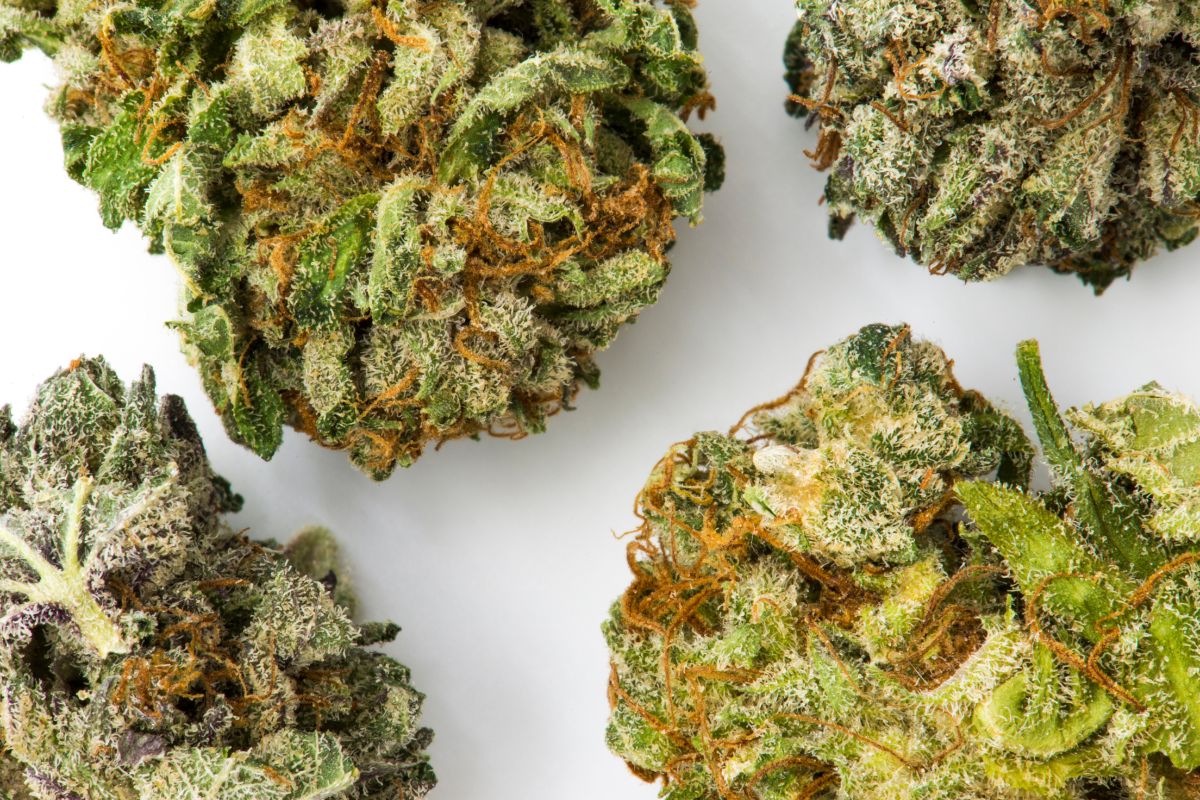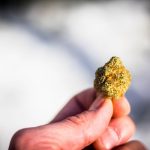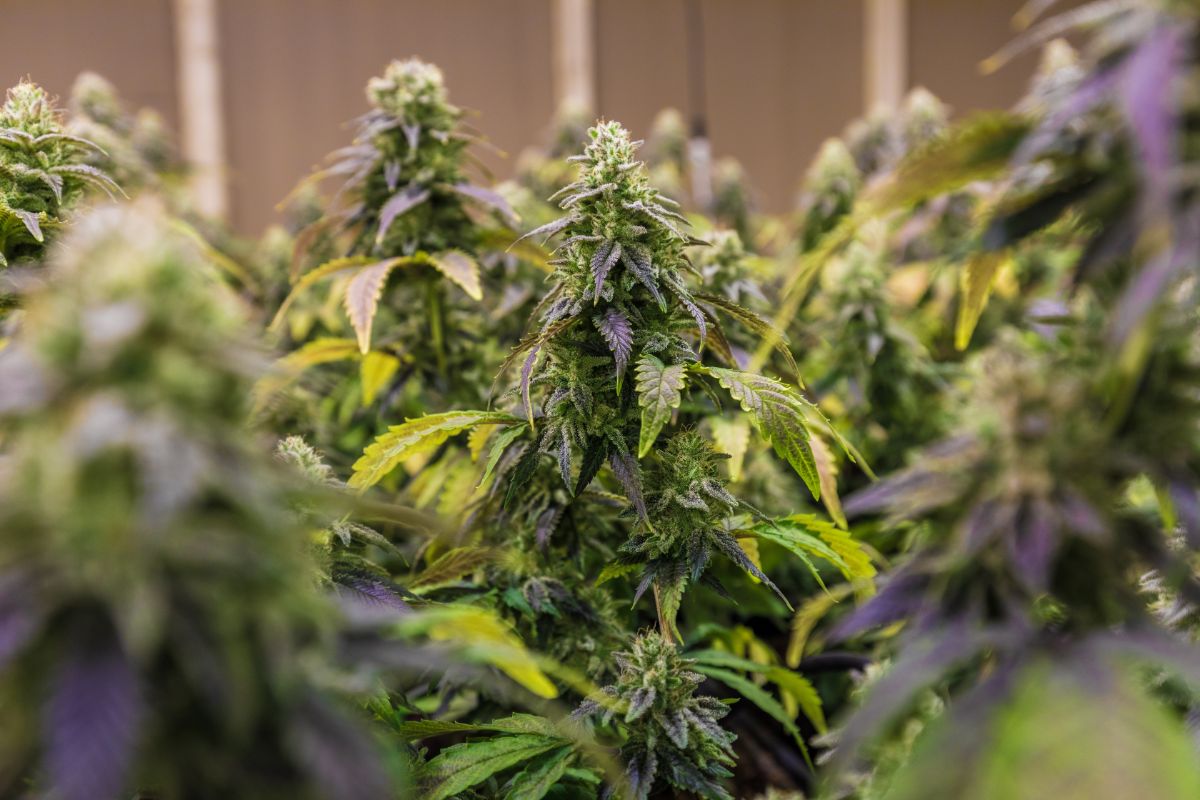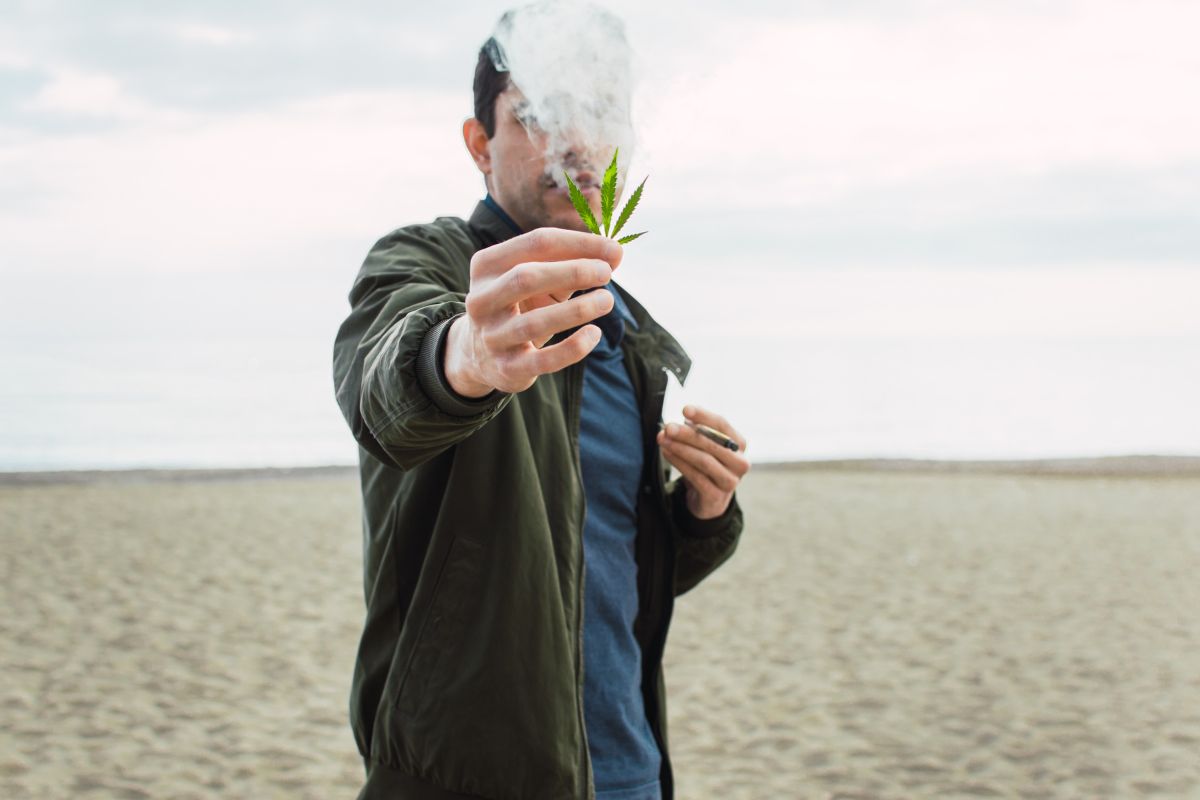Few things can be worse than significant depression. And it’s no surprise that people turn to things like weed for help.
But there is something that’s worse, and that’s taking weed for depression, only to find that it doesn’t work at all, and you’re left feeling even worse than you did before, because you just wasted $10, and you’re in exactly the same place you were before.
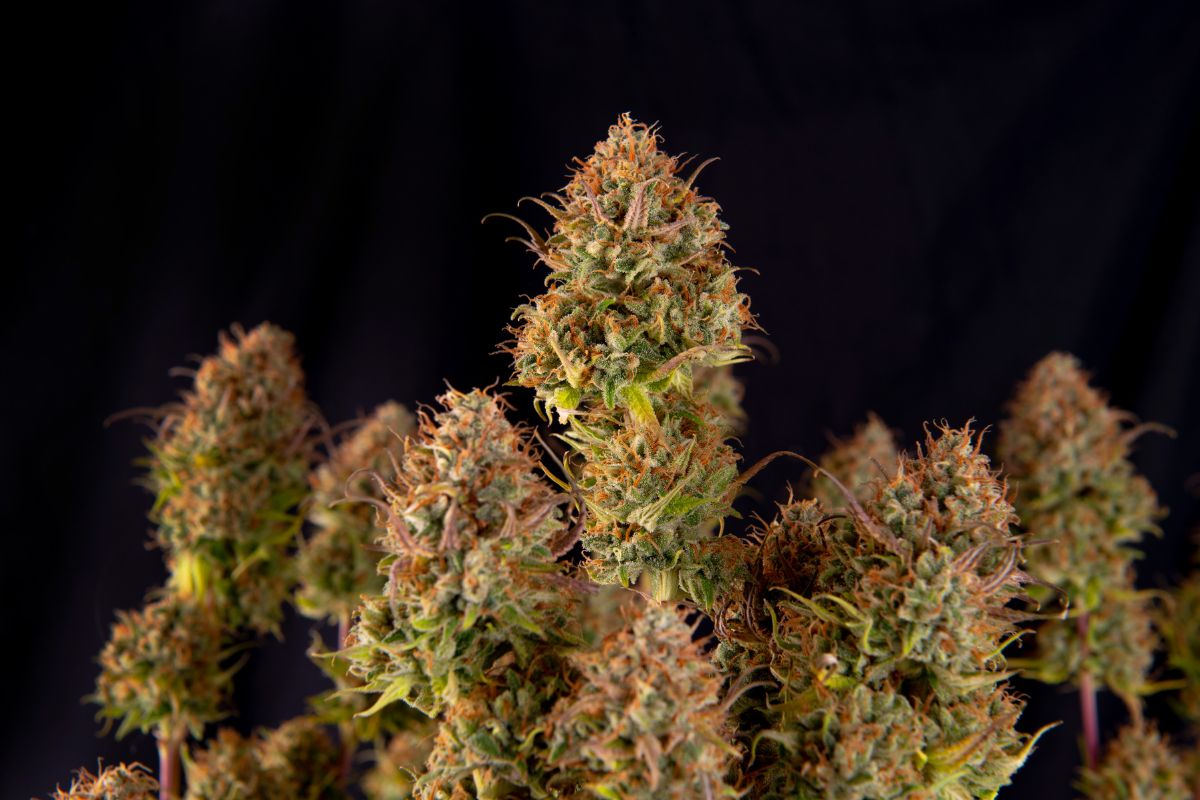
However, you’re taking the right route by coming here and reading this article, because I’m going to explain which cannabis strains are best for helping with your depression.
I’m going to go through 5 of the best strains for depression, and lay out the pros and cons of each, before giving you even more of a helping hand with an in depth buying guide, walking you through everything you need to consider before you buy.
Then I’m going to top that off with a section where I answer some of your most frequently asked questions on the subject.
Let’s get straight to it!
(The following strains aren’t listed in any particular order.)
Cannatonic
Description: The cannatonic strain, also referred to as the CBD Queen, is a hybrid that is equally balanced between indica and sativa.
The plant is beautiful, medium in size, with popcorn-like buds in a brownish green, complete with neon green leaves.
Derived From: Reina Madre and NYC Diesel
Indica / sativa: 50 / 50
How much THC: It does have a little THC, but this is rarely above 6%.
How much CBD: There are higher levels of CBD in the cannatonic strain than THC, and tests have shown that there can be between 6 and 17 percent CBD present.
Terpenes, Taste, & Aroma: Myrcene, pinene, and caryophyllene are the terpenes, and they bring a warm, rich, yet citrus and fresh aroma of pine and orange.
Also used for: The cannatonic strain is also used for treating pain, muscle spasms, anxiety and loss of appetite.
My experience with it: For me, this strain really delivered for me when it came to lifting my mood. And that’s not at all surprising given its high CBD content, as I discuss later in my buying guide.
Better yet, it prevented me from feeling sluggish, which gave me more impetus to turn my attention back to my leisure interests, which hadn’t had the same appeal to me in recent weeks.
Pros
- Believed to help with short term depression
- Also great for headaches, migraines, and pain relief
- Keeps you feeling clear-headed, calm, and focused
- Good for new users, due to the relative low proportion of psychoactive THC
- Out of all the strains reviewed here, Cannatonic is the one which is deemed most likely to help with depression given the science behind it, due to the relatively high levels of CBD as discussed in the buying guide.
Cons
- Doesn’t always produce a high due to the low THC content
- Often leaves the user with cotton mouth, which is basically a dry mouth
Jack Herer
Description: This hybrid strain was named after American cannabis rights activist Jack Herer.
While it lacks in visual appeal, it makes up for it in scent (more on this shortly). It has pale and medium green leaves and elongated, densely packed buds.
Derived From: Haze, Northern Light #5, and Shiva Skunk
Indica / sativa: 50 / 50
How much THC: Tests show that the Jack Herer strain has between 15 and 24 percent THC.
How much CBD: Less than 1%
Terpenes, Taste, & Aroma: Terpinolene is the primary terpene in the Jack Herer strain, and it is responsible for its clean yet herby and floral scent.
Also used for: Low grade stress and anxiety.
My experience with it: I love this strain, it’s just so energizing. When I’m using it I feel motivated and alert, not to mention creative. Just what I needed!
Pros
- An ideal “wake and bake” strain
- Provides an energizing high
Cons
- It has less than 1% CBD
- Not recommended for those suffering from insomnia
Cinex
Description: Also known as Cenex, Cinex is a hybrid strain, with a very white green hue on the nubs, while the leaves are the lightest green you’ll find. The nugs are laden with a generous frosting of crystals.
Derived From: Cinderella 99 and Vortex
Indica / sativa: 60 / 40
How much THC: Between 15 and 26 percent
How much CBD: Less than 1%
Terpenes, Taste, & Aroma: The main terpene present in the Cinex strain is limonene, which gives it a sweet and fragrant citrus aroma, while the flavor is somewhat earthy, with skunky undertones.
Also used for: Dulling migraines and joint pain, sedation and sleep, and alleviating stress.
My experience with it: This strain gave me an extreme, much-needed mood boost. What’s more, it also got my creative juices flowing, and I produced some of my best work.
Pros
- Great for relaxation and promoting sleep
- Gives you a good high, thanks to the THC content
Cons
- It can lead to hallucinations in some people
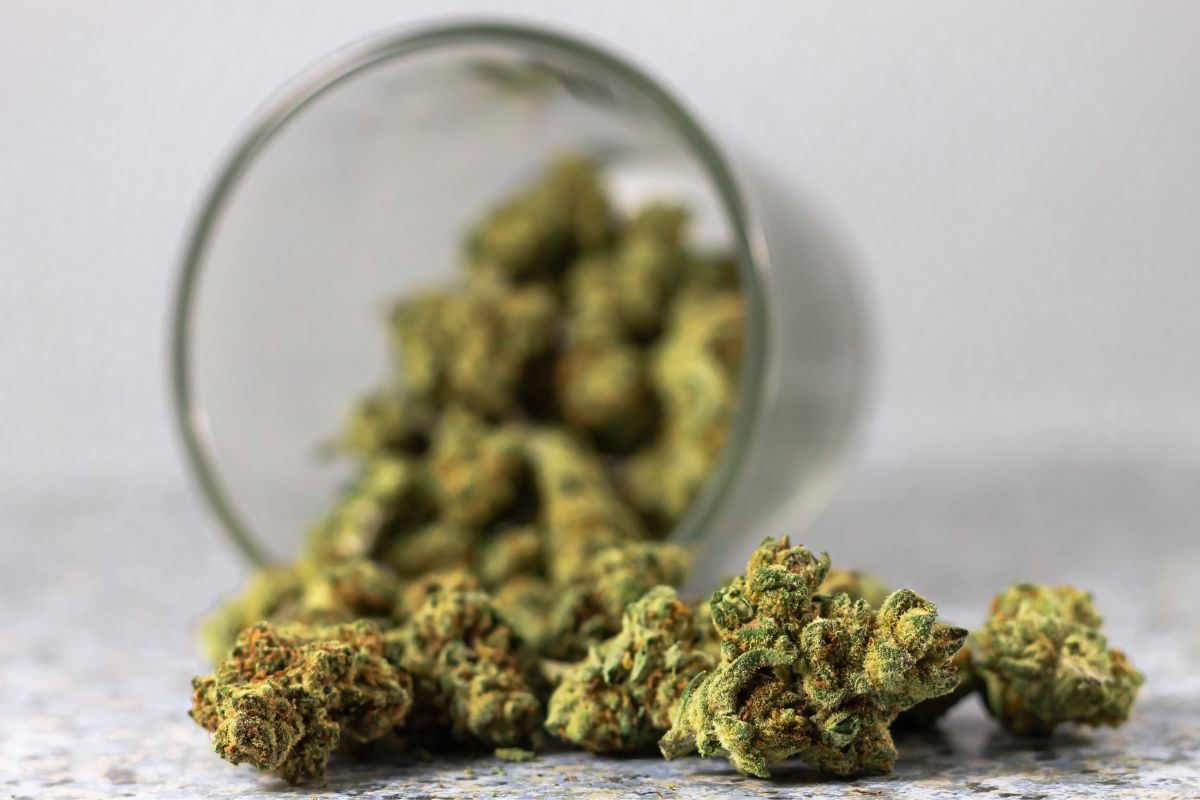
Blackberry Kush
Description: Blackberry Kush is a primarily indica strain with lots of trichomes and buds covered in thin red hairs. Throughout the green buds you will find black, purple and yellow hues.
Derived From: Afghani and Blackberry
Indica / sativa: 80 / 20
How much THC: Relatively high at an average of 16.5%
How much CBD: 0.5%
Terpenes, Taste, & Aroma: The primary terpenes found in Blackberry Kush include pinene, myrcene, and caryophyllene. This results in a strong aroma of pine trees, and there are musky notes similar to cloves, and it’s also a little spicy and peppery as well.
Also used for: It has anti-inflammatory properties, and is also used for treating asthma, arthritis, and Crohn’s disease.
My experience with it: This is such a great strain to take when you need a lift, because it gives you such a powerful euphoric feeling. Your mood is elevated straight away. And this was also accompanied by a feeling of deep relaxation. A great way to unwind after a long day.
Pros
- Gives users a great high, elevating their mood
- Great for relaxing and unwinding at the end of the day
- Can help stimulate appetite, and promote sleep
Cons
- It can cause bloodshot eyes, dry mouth users, dizziness, headaches and in some instances, anxiety
- Often causes a heavy onset of the munchies
XJ-13
Description: XJ-13 is a sativa dominant hybrid that looks rather sun-dried. The buds are a light green color with a splash of yellow.
But what’s even more noticeable about it is its strong citrus and pine scent, and the strong potency that’s guaranteed to give you a big high.
Derived From: Jack Herer and G13 Haze
Indica / sativa: 50% Sativa / 50% Indica
How much THC: 22%
How much CBD: 1%
Terpenes, Taste, & Aroma: The dominant terpenes in XJ-13 are terpinolene, beta-caryophyllene, limonene, myrcene, beta-pinene. This produces the effect of a strong citrus aroma, combined with undertones of pine, and a flavor that is sweet yet spicy at the same time.
Also used for: Good for relieving anxiety and stress, and alleviating migraines, nausea, anorexia and insomnia
My experience with it: I just love the big citrus hit from this strain. I got a pleasant body buzz, not to mention a cerebral high, right from the get-go! Really lifted my mood out of my depressed state, and got me more interested in my surroundings. And as well as making me feel more lively, it also made me feel more sociable and chatty. Highly recommended.
Pros
- Great for stimulating creativity and conversation
- Perfect for giving you a jump start to your day
- Great for providing immediate relief from a sour and depressed mood
Cons
- Due to the high THC content, this strain can produce quite a high, so it is not recommended for beginner users.
- The 1% of CBD is still kinda low, so it’s hard to claim that it helps with depression with sustained use
Buying Guide
OK, I’m going to start by leveling with you…
The truth is, when this article was written, and probably when you’re reading it as well, Cannabis, even when obtained legally, isn’t actually considered a clinical means to treat depression.
That doesn’t mean it cannot help, however, cannabis’s impact on depression has been studied for decades. And if I believed it wouldn’t help, I wouldn’t be writing this article.

Types Of Depression
If you have a low mood as a consequence of your current life circumstances, this just isn’t the same as clinical depression.
Clinical depression is characterized by sustained low mood, lasting weeks or months. And to be diagnosed with clinical depression, you are likely to have such symptoms as suicidal thoughts and/or thoughts of self harm.
Clinical depression has been linked to a chemical imbalance in the brain, and the medications for this depression put forward by the medical community are concentrated on redressing this balance.
If you feel that this is the form of depression that you have, then the best advice I can offer you is to seek help from a medical professional. In fact, you should share what you’re going through with anyone with a kind ear.
And it’s also important to note at this point that there aren’t any large human studies on the effect of cannabis on depression, and it has only been looked at in animals by the scientific community so far.
And it’s even more important to note that there are some who say that the long-term use of cannabis can increase feelings of depression.
But, if you’re just looking for a quick high because you’ve had a bad day or a bad week, and you just want to put your mind somewhere else for a short while, then I say go ahead.
What Else You’re Taking
You should also bear in mind whatever else you’re taking. Any substances classed as psychoactive can have an effect on the chemicals in your brain. And unsurprisingly, these can often interact with one another.
For example, alcohol is considered a depressant, and if you are already feeling low, drinking alcohol is likely to make you feel worse.
Similarly, caffeine is a stimulant, and is likely to make you feel more anxious and on edge.
And, if you’re already taking medication for your depression, you’ve probably been told to avoid taking alcohol, and possibly other drugs, because of their interactions in the body.
Legal Status In Your State
Another factor influencing your consumption will be the relevant laws in your particular state. While many states have legalized the use of cannabis, not all of them have, so this is something we would advise you to check before you buy and/or partake.
What Does Cannabis Do To Your Body And Brain?
As with alcohol, cannabis has an effect on multiple systems in the body and brain. Specifically the hormonal system, also known as the endocrine system, and the nervous system.
In terms of hormones, cannabis inhibits the release of thyroid-stimulating hormone (TSH) from the pituitary gland in the brain.
And cannabis also affects the activation of the reward and pleasure circuits in the brain by creating higher levels of neurotransmitters (chemical messengers) between brain cells.
Like neurotransmitters, cannabis can also act like a chemical messenger in the brain, and it can bind to special receptors on the outer layer of brain cells, called cannabinoid receptors.
But, while activation of these cannabinoid receptors can have both physiological and psychological effects, it is believed that the high you get from smoking weed is due to increased levels of dopamine between brain cells, since dopamine is the neurotransmitter most associated with pleasure and reward.
Yes, this sounds similar to what cocaine does to the brain, however, cannabis affects the release of dopamine between brain cells in a more roundabout way than cocaine does.
The THC in cannabis mimics anandamide which is a natural cannabinoid that is produced in the body.
But when it does so, it blocks the action of another neurotransmitter, namely gamma-aminobutyric acid (better known as GABA) which indirectly causes a boost of dopamine levels in the brain.
Cannabis also increases the levels of the neurotransmitter serotonin between brain cells, too. This is the neurotransmitter most associated with a feeling of contentment.
THC Vs CBD Strains
Marijuana strains typically contain the two naturally occurring compounds, cannabidiol (CBD) and tetrahydrocannabinol (THC). And while these two compounds may be very similar to one another on a molecular level, they can have very different effects in the body.
But the important point to note here is that while THC is known to be the compound that brings about a psychoactive high, it is not known to help with depression, other than by causing a temporary high.
In contrast however, CBD is not considered to be psychoactive and does not produce a high, although perhaps ironically, it is believed to help treat depression in some people with short term use.
Indica Vs Sativa Strains
The good news is that both indica and sativa strains are thought by many to help in the short term treatment of depression.
But with regard to which one is best for you for treating your depression, this depends very much on the effect that these strains have had on you previously, since people tend to react differently to different strains.
However, it’s worth noting that as a general rule, indica tends to have higher CBD and lower THC, while sativa tends to be higher in THC and lower in CBD.
Therefore, you could speculate that, in general, indica strains ought to be more effective in the short term treatment of depression than sativa strains.
Terpenes
If you’ve been taking weed for a while, you probably already know how the terpenes in cannabis can affect your overall experience…
Terpenes are basically the compounds in your weed that produce the aroma and flavor.
In a report published by PubMed in 2020, scientists coined the term “entourage effect” to describe the positive contribution to psychiatric symptoms derived from the addition of terpenes to cannabinoids.
This is basically down to an association between a familiar scent and taste with a particular remembered feeling. Thus, the terpene of a strain of weed may hold a fair influence on your mood.
Or to put it another way, a particular taste or aroma of a strain of weed may put you in mind of a previous lifting of your mood if that has been your experience with it so far.
Disclaimer
If you find that you experience significantly unpleasant side effects from taking marijuana, you should refrain from continued consumption unless directed not to by a medical professional.
Answers To Your Most Frequently Asked Questions
What Are The Best Strains For Anxiety, Stress And Low Mood?
For many people, feelings of low mood are often accompanied by feelings of anxiety and stress also. So if this sounds like you, I would recommend that you try Cherry Punch.
Which Terpenes Are Best For Depression?
The terpenes in cannabis that are believed to be the most effective at lifting a depressed mood are limonene, linalool, and pinene.
- 5 Best Weed T-Shirts For Women - June 26, 2023
- What To Wear To A Cannabis Café: 10 Awesome Options - June 26, 2023
- What Is Stoner Girl Clothing? All You Need To Know - June 26, 2023

